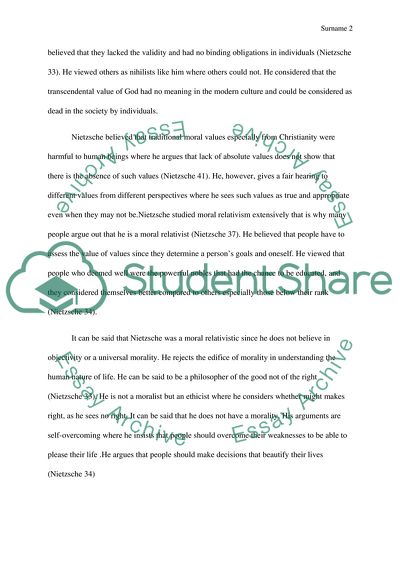Cite this document
(Arendt's and Nietzsche's Views Essay Example | Topics and Well Written Essays - 2250 words, n.d.)
Arendt's and Nietzsche's Views Essay Example | Topics and Well Written Essays - 2250 words. https://studentshare.org/philosophy/1873309-friedrich-nietzscheaposs-on-the-genealogy-of-morals-and-hannah-arendtaposs-responsiblity-and-judgment
Arendt's and Nietzsche's Views Essay Example | Topics and Well Written Essays - 2250 words. https://studentshare.org/philosophy/1873309-friedrich-nietzscheaposs-on-the-genealogy-of-morals-and-hannah-arendtaposs-responsiblity-and-judgment
(Arendt's and Nietzsche'S Views Essay Example | Topics and Well Written Essays - 2250 Words)
Arendt's and Nietzsche'S Views Essay Example | Topics and Well Written Essays - 2250 Words. https://studentshare.org/philosophy/1873309-friedrich-nietzscheaposs-on-the-genealogy-of-morals-and-hannah-arendtaposs-responsiblity-and-judgment.
Arendt's and Nietzsche'S Views Essay Example | Topics and Well Written Essays - 2250 Words. https://studentshare.org/philosophy/1873309-friedrich-nietzscheaposs-on-the-genealogy-of-morals-and-hannah-arendtaposs-responsiblity-and-judgment.
“Arendt's and Nietzsche'S Views Essay Example | Topics and Well Written Essays - 2250 Words”. https://studentshare.org/philosophy/1873309-friedrich-nietzscheaposs-on-the-genealogy-of-morals-and-hannah-arendtaposs-responsiblity-and-judgment.


